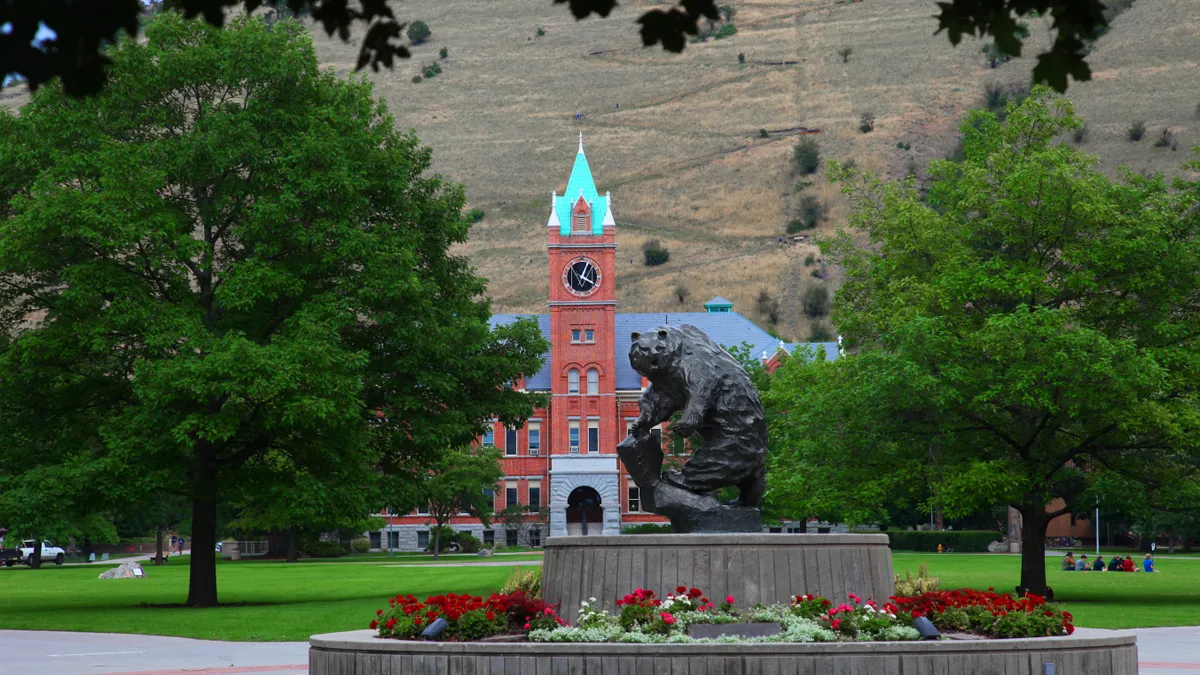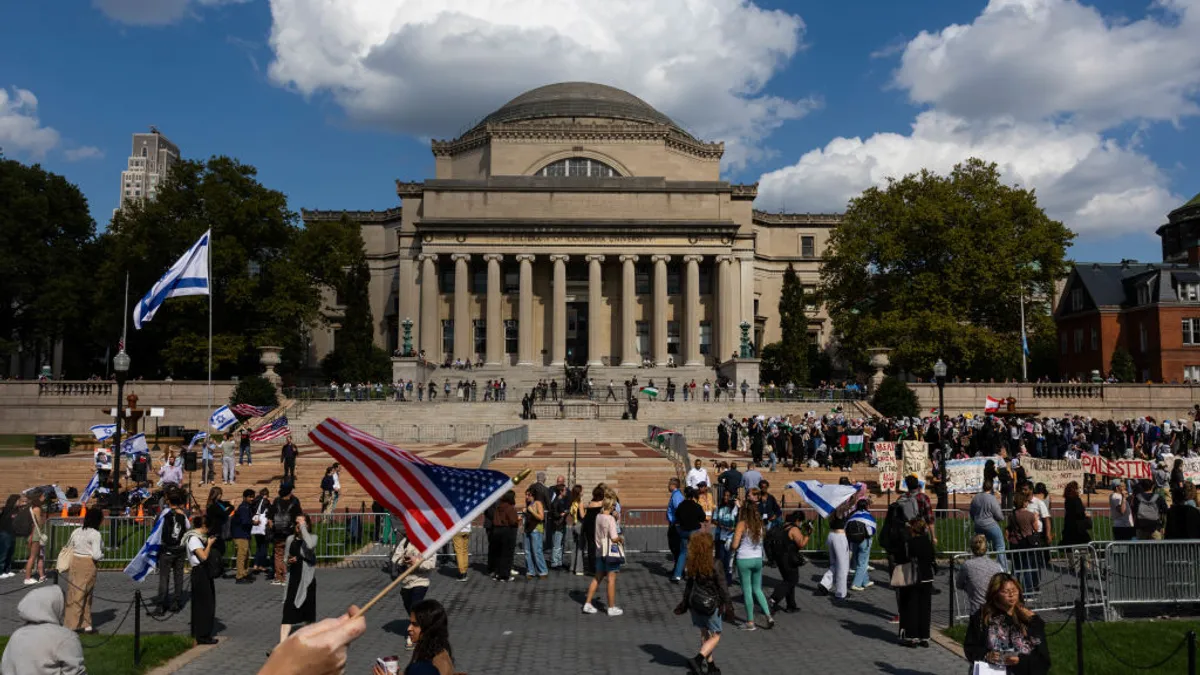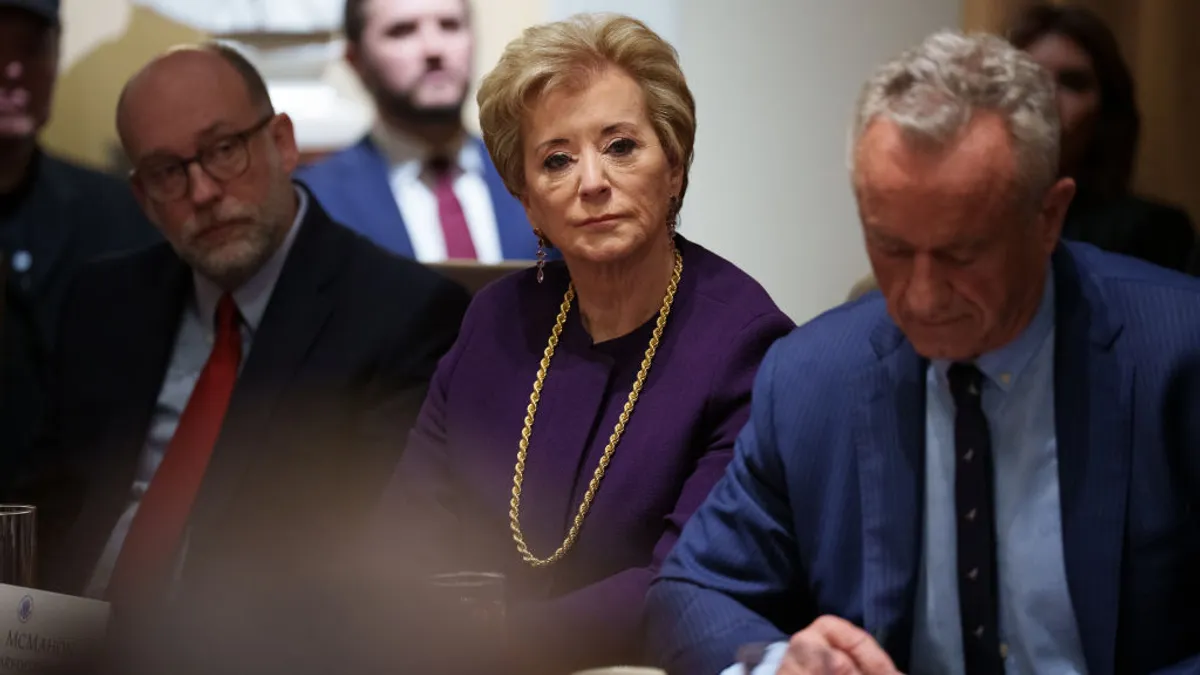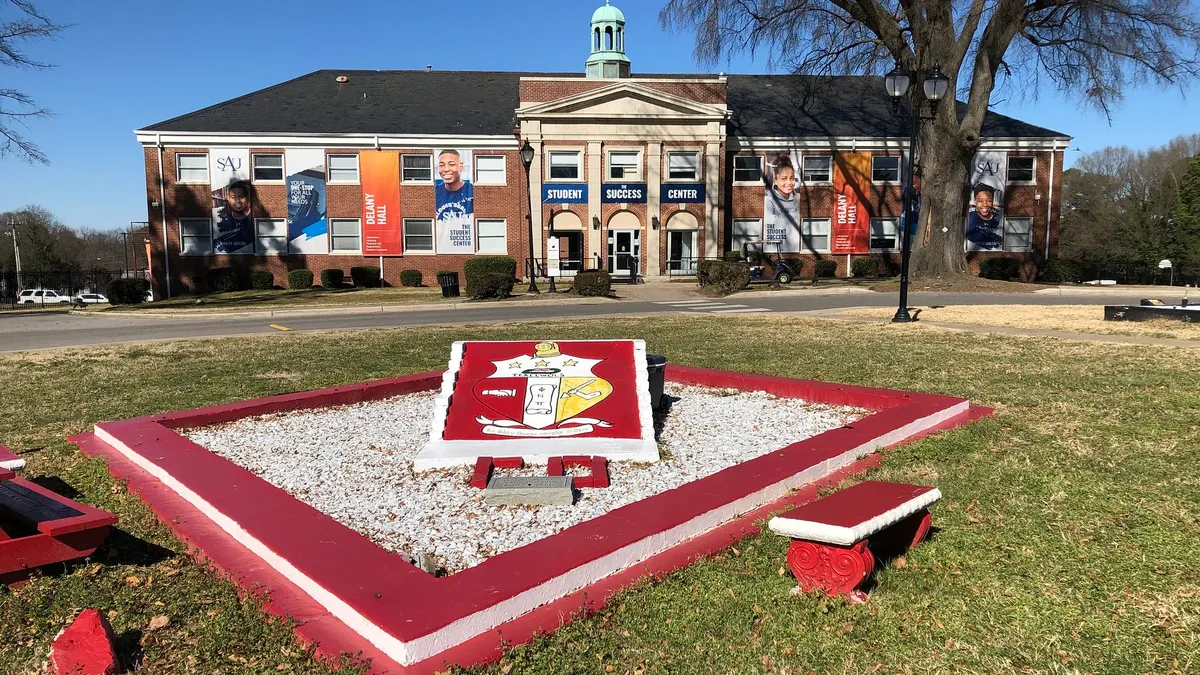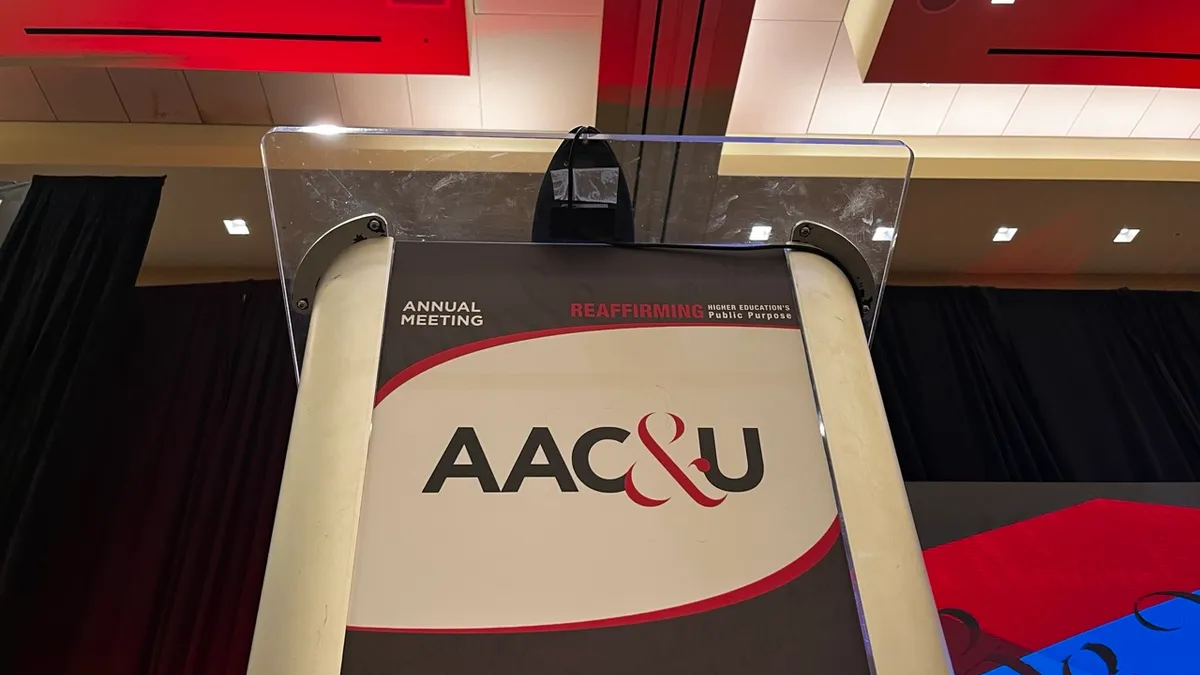Colleges have long recruited military veterans as students, incentivized in part by the original 1944 GI Bill and its successors to fund higher education for members of the armed services. But a singular focus on getting veterans enrolled can leave them on their own once they've entered the classroom.
Having students and staff with military experience is valuable as more than a financial boon to campuses, and colleges need to reconsider how to engage with them, according to Seth Bodnar, president of the University of Montana. Bodnar is an Army veteran and remains a member of the National Guard. Before joining the University of Montana, he was a senior executive at General Electric and taught economics at the U.S. Military Academy at West Point, his alma mater.
Bodnar shared his thoughts on how his Army background influences his leadership style, how colleges can recruit veterans as students and employees, and the benefits of engaging with student protests.
This interview has been edited for clarity and brevity.
HIGHER ED DIVE: How did the skills you gained during your military service transfer to leading a large university?
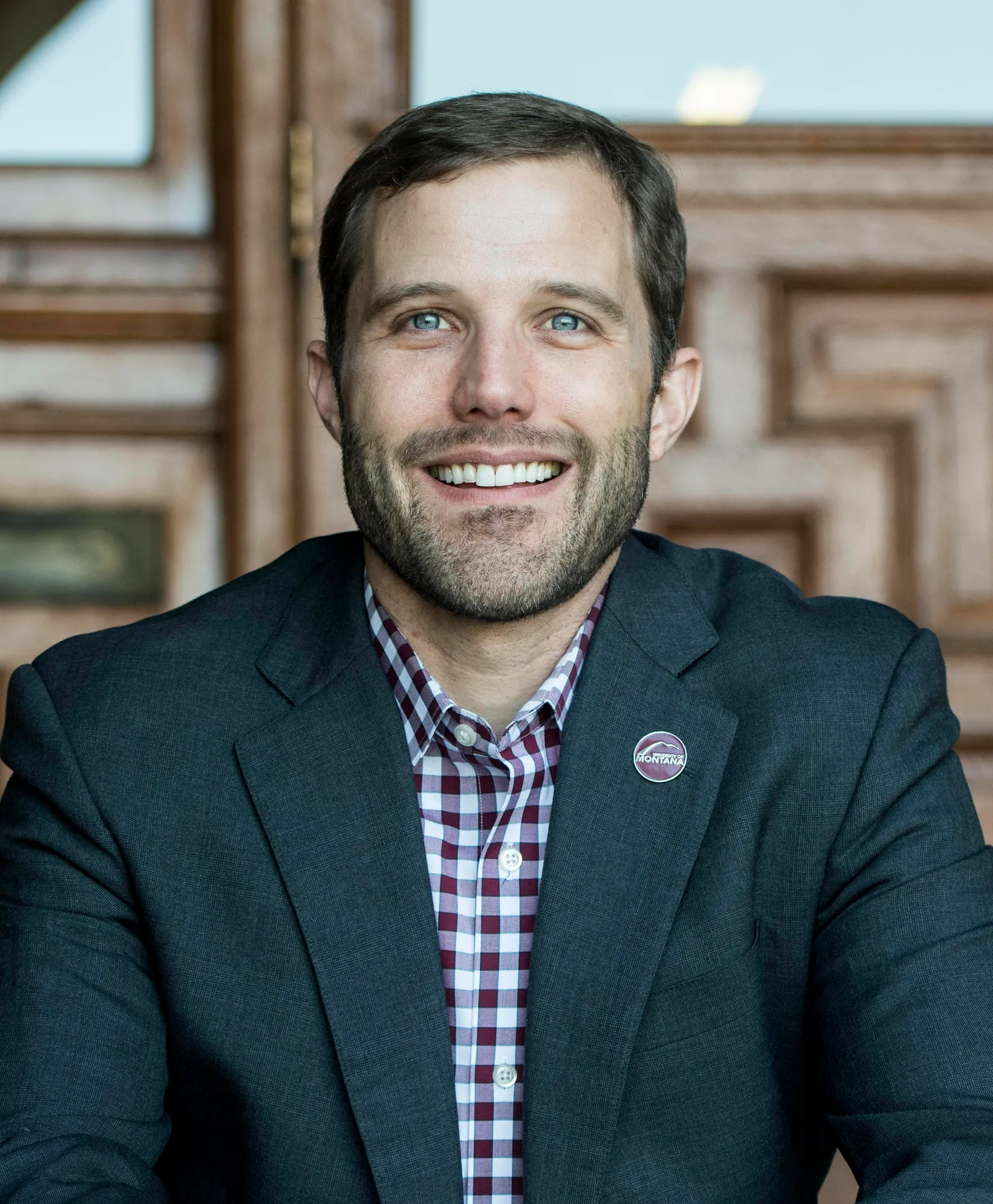
SETH BODNAR: You learn pretty quickly in the military that your job is not to know everything or have every answer at every moment. Your job is to provide leadership and direction for your platoon and to draw upon the knowledge and expertise of the people in that organization to help it be the most effective it can.
That applies to a university, the military, a business — anywhere. And so I think those skills are absolutely transferable.
How does the University of Montana work to support veterans who enroll?
Historically, the university has been a great one for veterans. What we've done over my time here is established that we don't want to just be a place that supports veterans while they're here. We want to be a place that attracts veterans and military families. We're approaching both because anybody who has been in the military knows that every member of that family is serving.
We launched an office of military and veteran services and constantly ask ourselves how to build services that lead us to be the most military-friendly university in the country. That's the goal we're aiming toward, and we're steadily making progress toward it.
Also, we make sure the narrative about veterans is not just seeing them as a population that needs our help or the gratitude of a grateful nation. We see veterans as a strategic national resource. It's a group of people that needs to be supported to continue their mission of serving this country.
What do college leaders need to know about engaging with veterans as students?
First, veterans and military families are coming with an existing set of skills and an attitude that already is oriented towards service. It's not a needy population, but one that should be treated with a measure of respect in recognition of that experience. You know, I can't treat a military veteran who perhaps had five or six years of service the same way I would treat an 18-year-old coming out of high school.
Second, make sure that you're intentional in creating a sense of community for veterans on a campus. You should have a place where they can gather but also ways for veterans to engage with the broader campus population through service activities. They're great role models and mentors for other students. Recognizing that veterans are mission focused and providing ways for them to continue their mission of service on your campus will help them feel engaged and part of that community.
The third piece is building programs to help veterans navigate that transition from military to civilian career. You want a process to help veterans design their next steps and translate what they already know into the civilian world. Making that leap from the military is challenging, especially the longer you served.
I was an infantry officer, and then I was a Green Beret. I had a lot of skills. But not a lot of those were just easily translatable without some intentional thinking and some exploration.
Veterans have always been a popular demographic for college marketing. Has the higher ed sector done a good job delivering once they enroll?
There's definitely an opportunity for all universities to do a better job of focusing on the things that matter to a veteran.
We've seen very intentional marketing efforts that have targeted veterans and targeted GI Bill benefits in some irresponsible ways. Fortunately, we've seen the appropriate reining in of some of those practices. Our university is trying to focus on serving military veterans, but serving them in a way that benefits them, not in a way that I think some of the for-profits out there have done over the past decade or so.
How should colleges approach recruiting veterans as employees, not just students?
A lot of the same things apply. It's recognizing that veterans bring some really important skills and competencies that are hard to articulate on a resume. When you see a military veteran's resume come across your desk, you know that they have some of those intangible skills, even if their resume may not list the jobs that you might expect from your job description.
Once hired, you should also help them chart a path from entry-level position up through various different roles. It's well worth the investment.
I think employers overlook military veterans at their peril, because this is a tremendously high-potential group of individuals that can make any organization better.
Like many colleges, the University of Montana saw student protests this year over topics like housing and diversity and inclusion on campus. But you've engaged with protestors more publicly and directly than is typically standard practice. What drove that decision?
The founders of this country said an educated citizenry is the bulwark of the republic. You need an engaged citizenry that's going to participate in the political process in meaningful and thoughtful ways. That's one of the really important roles that I think higher education, and particularly public higher education, plays today.
I see it as our job as a public university to build in our students that willingness to challenge the status quo — but do so in ways that are respectful, are informed or thoughtful, and what I call productive engagement and discourse.
Now, to our students, I am the embodiment of the status quo as a university president. It sometimes puts me in an uncomfortable position because I am here and I'm encouraging students to challenge the status quo at the same time that I recognize I am the status quo. That discomfort is a small price to pay for what I think is a very, very important role that university plays in the continued health of our democracy in our country.
Have you seen students engaging in a productive way?
When you engage with your students in a respectful, informed way, they're very often going to reciprocate. When you shut out students and you don't encourage and foster debate and dialogue, even if it puts you in a place of discomfort, you're doing them a disservice.
Is it always as informed as it should be? Is it always perfect? Of course not. But if you don't encourage it, it's never going to be. We see that as part of our job.



